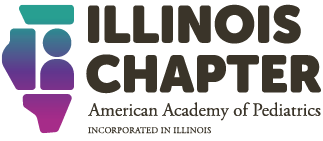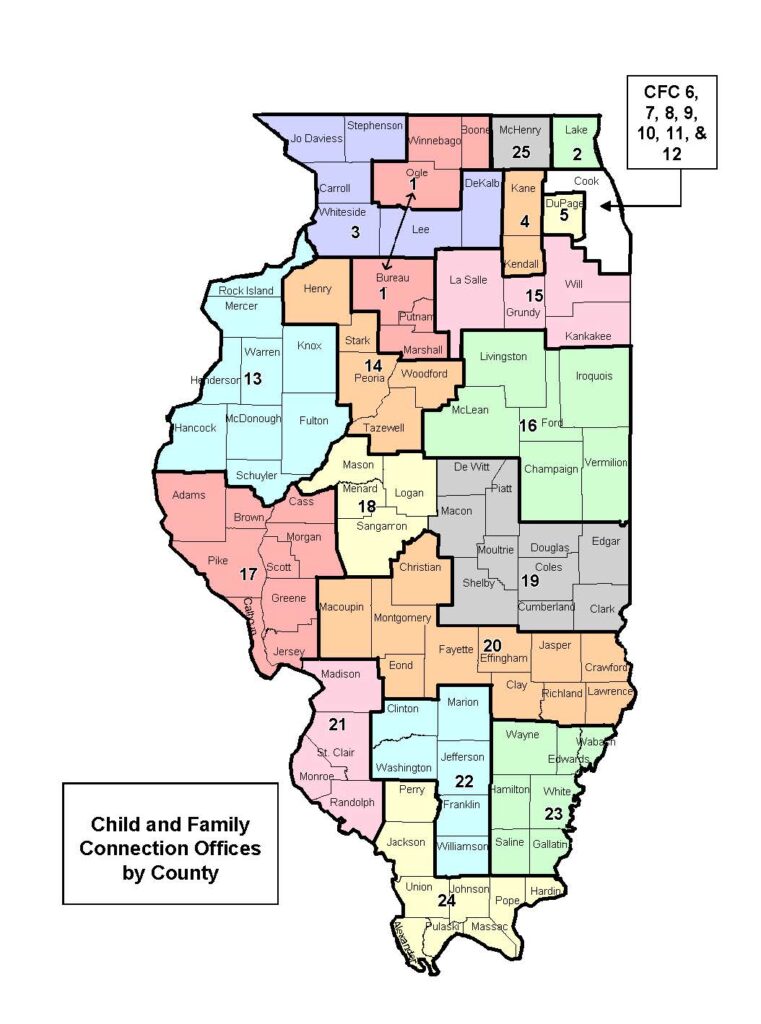Early Intervention
Early Intervention Relies on Primary Referral Sources
Early Intervention in Illinois is a statewide program that provides supports and services for families to help their children under age 3 meet developmental milestones. The Illinois Chapter’s Early Childhood Committee identified Early Intervention (EI) referral processes as a top priority for pediatrician engagement. The Committee is actively working to collaborate with state agencies to improve and streamline the EI process for pediatricians.
This page will help you with navigating EI with the families you serve.
Promoting Early Identification of Developmental Delay & Disability
An Overview of Surveillance Screening and CDC’s Developmental Milestones
Join Learn the Signs Act Early (LTSAE) Illinois Ambassadors, Cari Roestel and Jean Davis, as they present an overview of the CDC's LTSAE program. Get a clear overview of developmental milestones, learn more about the CDC milestone tracker app, and explore practical tools, tips, and resources for how LTSAE can support pediatricians and families in ensuring child health and development from birth to 5 years.
Presentation Slides LTSAE Website
CDC Milestone App Print Materials For Families
In Illinois, EI has strict requirements related to when they need to connect with families. Once a family has reached out to EI – either through a phone call or fax from a healthcare provider - EI MUST, by law, adhere to the following timeline:
- Call the family within 2 business days
- Evaluate a child and provide a plan within 45 days
- Provide services for the child within 30 days after an agreed-upon plan
If EI does not provide these services within the allotted time, families are eligible to file an official complaint with the Illinois Department of Human Services (DHS) to either receive these services faster and/or receive extra services to make up for those missed. Families have up to one year to file a complaint starting from the time of the violation.
Equip for Equality can help families file complaints to assist families in receiving needed services or to provide data to the State. Data collection is crucial to highlight existing challenges and advocate for funding for these services. These resources are available to your practice and families:

Resources For Families
Know the signs! Milestones matter. At the following ages, most children can...
- Raise their heads slightly when lying on their stomachs
- Briefly watch objects
- Make "noise in throat" sounds
- Pull away from a cloth or blanket on their faces
- Lift their heads and chest when lying on their stomachs
- Show vigorous body movement
- Follow a moving person with their eyes
- Recognize a bottle or breast
- Smile when someone speaks to them
- Sit with minimal support
- Roll from their backs to their stomachs
- Turn to locate and identify sounds
- Transfer objects from hand to hand and from hand to mouth
- Respond to friendly speech with a smile or coo
- Pull themselves up to stand and may step with support
- Pick things up with a thumb and one finger
- Nod their heads to signal "yes"
- Give affection
- Say two or three words
- Hand over toys upon request
- Kick a large ball
- Turn pages in a book (two or three at a time)
- Ask for items by name
- Recognize a familiar picture and know if it is upside
- Use or three words together, such as "more juice"
- Walk up stairs while holding the railing
- Stand momentarily on one foot
- Open doors
- Unbutton large buttons
- Verbalize toilet needs
- Stack objects of different sizes

